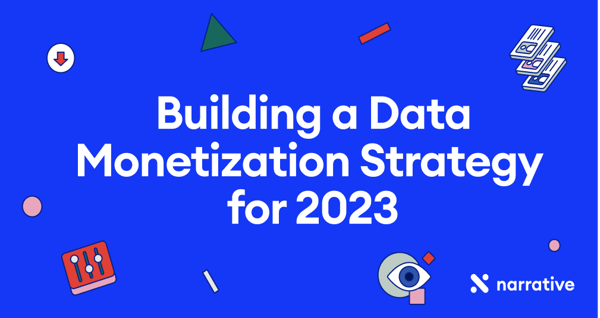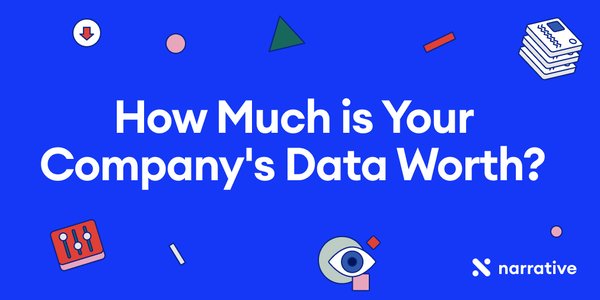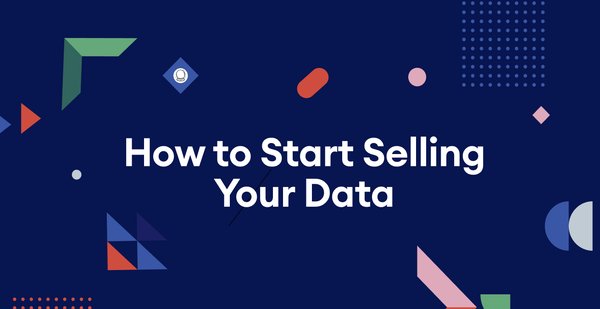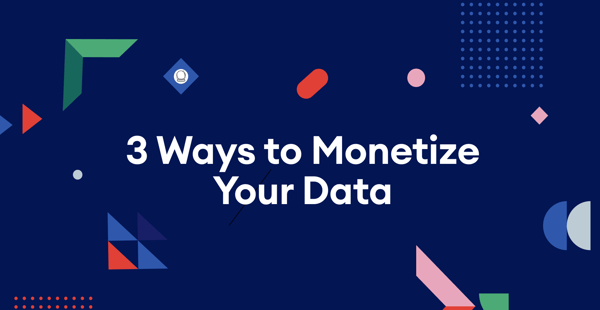Please Note: Narrative's offerings are constantly evolving. While some of the products mentioned below are no longer available, the foundational ideas they introduced are timeless and continue to inform our innovations. This article is preserved as a reference. For the latest on how Narrative is transforming data collaboration, click here to learn more.
Build out a data monetization practice that maximizes revenue while minimizing time and effort
Companies are realizing that their data as an asset has intrinsic value. With that realization often comes the desire to create a data monetization business to turn that valuable asset into revenue.
On paper, selling data is easy. Collect the data, sell the data, and then transfer the data. In reality, selling data is much more complicated than that.
There are six important things to do and consider before you decide to build out a data business:
- Create a long-term business plan
- Take inventory of your data
- Develop a point of view
- Beware of data brokers
- Decide which channels to use
- Be diligent about data regulations
1. Create a long-term business plan
“Data is the new oil” is an overused but apt phrase. What data is not is a “free lunch.” Launching a data monetization effort is going to require an investment of time and resources to be successful.
Building a data business typically requires input from senior management, sales, product management, legal, engineering, analytics, and finance. Each of these teams need ongoing involvement to create a sustainable business.
It’s important to be realistic: You aren’t going to create a multi-million dollar business overnight. The first year of doing data monetization typically results in a lot of learnings and a few deals. Year one can be the catalyst, however, for building long term revenue, but you won’t get there overnight.
2. Take inventory of your data
Data is a nebulous term. It’s often used as shorthand to talk about a specific type of data. Before kicking off a data monetization strategy, you need to understand what types of data you have. From there you have to determine which of those data sets you’re willing to sell.
Here are some sample questions you should ask when taking inventory of your data:
- Do you have a comprehensive list of data that you think can be monetized?
- Is the data considered consumer data or personal data?
- How are you collecting information?
- Which systems do those datasets live in?
- What is the format and schema of the data in those systems?
- It is easy to get the data out of those systems and move them to other platforms?
- How do you approach the value of data? Do you have an idea how much the data you’re looking to monetize is worth to you?
- Do any of the datasets present regulatory risks or challenges?
- How do you think your customers will use the data?
- Will the data be used for marketing purposes?
Here’s a checklist to help you take inventory of your data and evaluate building your data monetization business.
3. Develop a point of view
You understand your data better than anyone else. When creating a data monetization strategy you should have a point of view about why your data is valuable to other organizations.
Spend time looking at how you use your data internally and try to envision if those same techniques would apply to other companies. Estimate how much your data is worth to you and evaluate if that data valuation would apply externally. Ask yourself how many companies fit the profile of finding your data a valuable resource.
The easiest monetization opportunities will be the ones that are the most familiar to you. Leveraging those use cases will give you an estimate of the opportunity size of a data business.
There will likely be opportunities to sell your data for use cases you can’t contemplate. Starting with a POV and with familiar scenarios will make the early days of selling data more productive.
4. Beware of data brokers
The data broker industry was born to make it easier for companies to sell their data. To fulfill that promise they removed the nuance from the data sellers. That nuance is what allows companies to build long-term sustainable businesses.
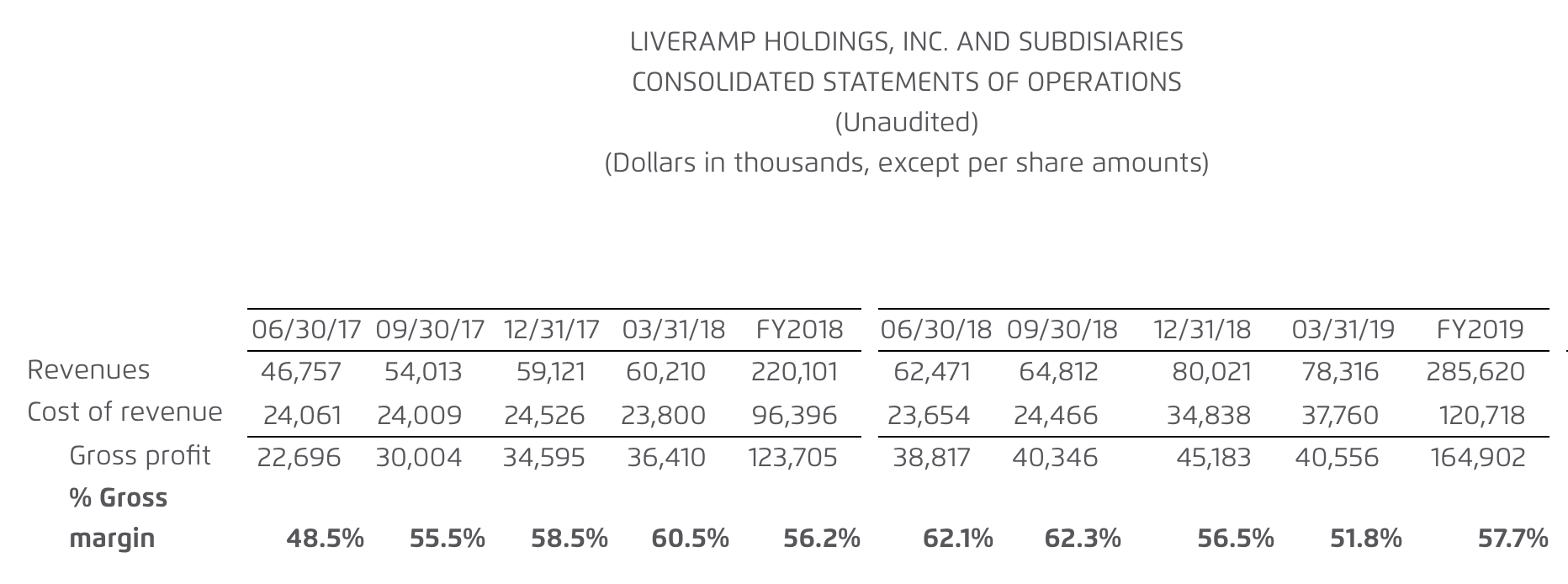 The typical gross margin for a data broker shows that the middle person keeps most of the value for themselves. (Source: LiveRamp.)
The typical gross margin for a data broker shows that the middle person keeps most of the value for themselves. (Source: LiveRamp.)
Data brokers introduce three challenges to creating a scalable data monetization business:
- They create opacity between buyers and sellers. Data brokers are scared that transparency will lead to buyers and sellers working directly. This opacity makes it impossible to run your data business in a thoughtful way.
- They remove controls from both sellers and buyers. Data brokers create a set of market mechanisms that you are forced to work with. As a seller you have very little wiggle room to run your strategy the way that best fits your goals.
- The commercial model employed by data brokers really only benefits them. The margins they take can run anywhere from 50 to 95%, meaning you keep very little of the value that you have created.
In the short run, data brokers can seemingly make your life easier. In the long run, however, they add undue risk and put a cap on the potential for your data business.
If you are unsure whether the company you are dealing with is a data broker, ask them if they themselves buy data. If a company doesn’t have their own data, yet they are an active participant in the market they are serving, they are a data broker.
5. Decide which channels to use
When it comes to selling data, a number of different channels exist. We’ve already discussed data brokerages and some of the challenges they present. Beyond the pure broker model you might also consider working with a data marketplace or by selling your data directly.
Data marketplaces look like an eBay for data. These marketplaces can be great places to start your data monetization journey, as they offer easy and instant access to a large number of buyers. Examples include the AWS Data Exchange, the Snowflake Data Exchange, and the Narrative Data Marketplace.
You should consider the following questions when working with a data marketplace:
- Do you have pricing controls?
- Can you manage which companies you are willing to sell to?
- What percentage of the transaction does the marketplace take?
- Does the marketplace have any rights to your data?
If the answers to these questions align to how you want to sell data, you should work with the marketplace. If you have to make uncomfortable tradeoffs it might be worth looking for another marketplace to work.
6. Be diligent about data regulations
There have been a number of data regulations passed recently. The regulations have been enacted by the European Union (GDPR), California (CCPA), and others. These regulations add on to laws that have been around for years like HIPAA.
These rules have been put in place to make sure that citizens have protections when companies are collecting information about them.
These regulations don’t prevent you from creating data monetization businesses, rather they force companies to be more diligent when it comes to their data collection practices. Ultimately, they are designed to create a healthier more sustainable ecosystem while protecting the rights of consumers.
Recap
Selling data can be a meaningful revenue stream for many companies. Like any other part of your business, data monetization requires a thoughtful approach. The companies that are the most successful at selling their data are the ones that start the process armed with information and ready to work.
Narrative Distribute helps companies tackle the complexities of data monetization. Data sellers can use Narrative Distribute as their data monetization platform of record. If you are looking to move ahead with your data selling strategy, Narrative Distribute can help you implement it and turn your strategy into reality.
